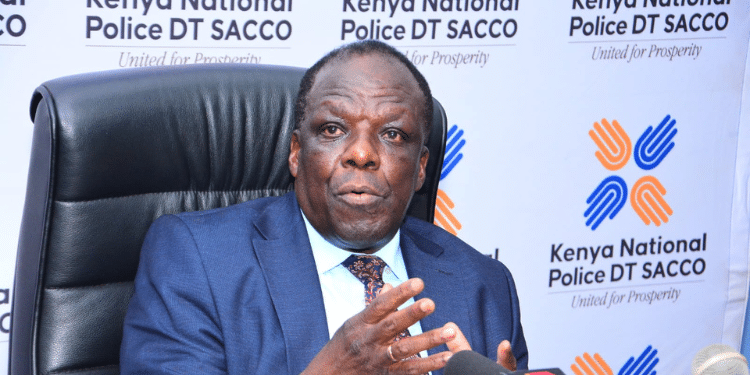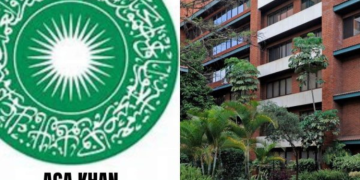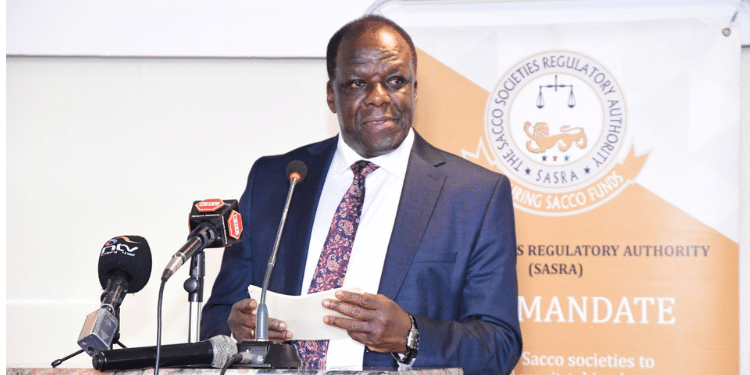Cabinet Secretary (CS) for Co-operatives and MSMEs Development, Wycliffe Oparanya, has raised concerns over the misclassification of Transport Cooperatives as SACCOs.
Speaking during the official launch of The Sacco Supervision Report 2024 on September 25, Oparanya directed the Committee of Experts to revisit the current registration thresholds for SACCOs, which are currently capped at just ten members.
CS Oparanya also raised concerns over several Transport Cooperatives currently registered or operating as Matatu or PSV SACCOs.
These entities do not meet the definition of a true SACCO, as they are not engaged in mobilizing deposits or providing credit to members.
Instead, they operate as associations of individuals managing transport businesses or routes in compliance with the National Transport Safety Authority (NTSA).
“On the same note, I do know that there are several Transport Cooperatives, which are currently registered or operating as Matatu or PSV SACCOs,” Oparanya said.
“These entities are not SACCOs because they are not engaged in the mobilization of deposits and/or intermediating the deposits as credit. They are simply an association of people coming together to operate a transport business or manage routes as required by the National Transport Safety Authority (NTSA).”
The directives aim to clarify registration requirements, ensure financial sustainability, and distinguish genuine SACCOs from informal transport associations.
Several popular Matatu lines have recently started operating as SACCOs, with some even regulated by the SACCO Societies Regulatory Authority (SASRA).
Notable examples include 2NK, Super Metro, Naekana SACCO, North Rift, 4NTE SACCO, and Kinatwa SACCO.
Also Read: Cabinet Approves Changes in Operation of SACCOs
CS Oparanya Gives Directives to Saccos
At the same time, Oparanya issued directives to SASRA and the Commissioner of Co-operatives regarding the management and auditing of SACCO financial accounts.
Key directives include:
- Accountability for Financial Reports: All financial statements and reports must be countersigned by the Chief Executive Officers and Finance Officers who prepared them, as well as the Board of Directors. This ensures both management and the board are accountable for the disclosures.
- Internal Auditor Opinions: Internal auditors must provide their opinions on financial statements and reports before these documents are submitted for external auditing.
- Sanctions for External Auditors: Appropriate action must be taken against external auditors who fail to conduct audits in accordance with the SACCO Societies Act and Regulations, including referral to the Institute of Certified Public Accountants of Kenya (ICPAK) for further sanctions.
Also Read: 2NK Sacco Society Ltd: Membership Requirements, Loan Options, Savings And Interest
SASRA Classifies Regulated SACCOs into Three Tiers
SASRA regulated SACCOs into three tiers based on their total assets. This classification helps the Authority assess, monitor, and manage individual and peer risk profiles as part of its Risk-Based Supervision processes.
The three tiers are as follows:
- Large-Tiered Regulated SACCOs: Total assets exceeding Ksh5 billion.
- Mid-Tiered Regulated SACCOs: Total assets between Ksh1 billion and Ksh5 billion.
- Small-Tiered Regulated SACCOs: Total assets below KSh1 billion.
Follow our WhatsApp Channel and X Account for real-time news updates.






















































![Senator Allan Chesang And Chanelle Kittony Wed In A Colourful Ceremony [Photos] Trans Nzoia Senator Allan Chesang With Channelle Kittony/Oscar Sudi]( https://thekenyatimescdn-ese7d3e7ghdnbfa9.z01.azurefd.net/prodimages/uploads/2025/11/Trans-Nzoia-Senator-Allan-Chesang-with-Channelle-KittonyOscar-Sudi-360x180.png)




















